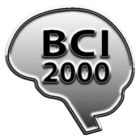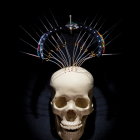Links
You can find interesting links below. We have found many of these to be of use to our research, and would recommend those interested in learning more about the respective fields to follow the links.

BCI2000 is a general-purpose system for brain-computer interface (BCI) research. It can also be used for data acquisition, stimulus presentation, and brain monitoring applications. The mission of the BCI2000 project is to facilitate research and applications in the areas described above. Our vision is that BCI2000 will become a widely used software tool for diverse areas of real-time biosignal processing. BCI2000 system is available for free for non-profit research and educational purposes. It has been provided to about 600 laboratories around the world.

Increasing understanding of brain function and increasingly sophisticated methods for recording and interpreting signals from the surface of the brain (electrocorticography (ECoG)) are opening up exciting new opportunities for using these signals for clinical or research purposes. These developments have sparked tremendous interest in human and animal ECoG recordings to investigate the basis of normal brain function related to motor control, language, or memory, as well as of abnormal function such as epileptic seizures. The ECoG workshop series reviews recent research findings in this area and demonstrates examples for the emerging translation of these new findings...

PhysioNet offers free access via the web to large collections of recorded physiologic signals and related open-source software. The PhysioNet web site is a public service of the PhysioNet Resource funded by the National Institutes of Health's NIBIB and NIGMS. Although PhysioNet was established in 1999 with contributions from members of the PhysioNet Resource at MIT and Harvard, its data and software collections have grown enormously since then because of many generous and significant contributions from a worldwide community of researchers. By sharing common data sets, and software in source form, the research community benefits from access to materials that have been...

SigViewer is a powerful viewing application for biosignals, originally designed to display electroencephalographic (EEG) data. SigViewer now supports several biosignal data formats through libbiosig4c++ (for example GDF, EDF, CNT, EEG, and many more). Besides displaying biosignals, SigViewer supports creating annotations to select artifacts or specific events.

EEGLAB is an interactive Matlab toolbox for processing continuous and event-related EEG, MEG and other electrophysiological data incorporating independent component analysis (ICA), time/frequency analysis, artifact rejection, event-related statistics, and several useful modes of visualization of the averaged and single-trial data. First developed on Matlab 5.3 under Linux, EEGLAB runs on Matlab v5 and higher under Linux, Unix, Windows, and Mac OS X (Matlab 7 recommended). EEGLAB provides an interactive graphic user interface (GUI) allowing users to flexibly and interactively process their high-density EEG and other dynamic brain data using independent component...

